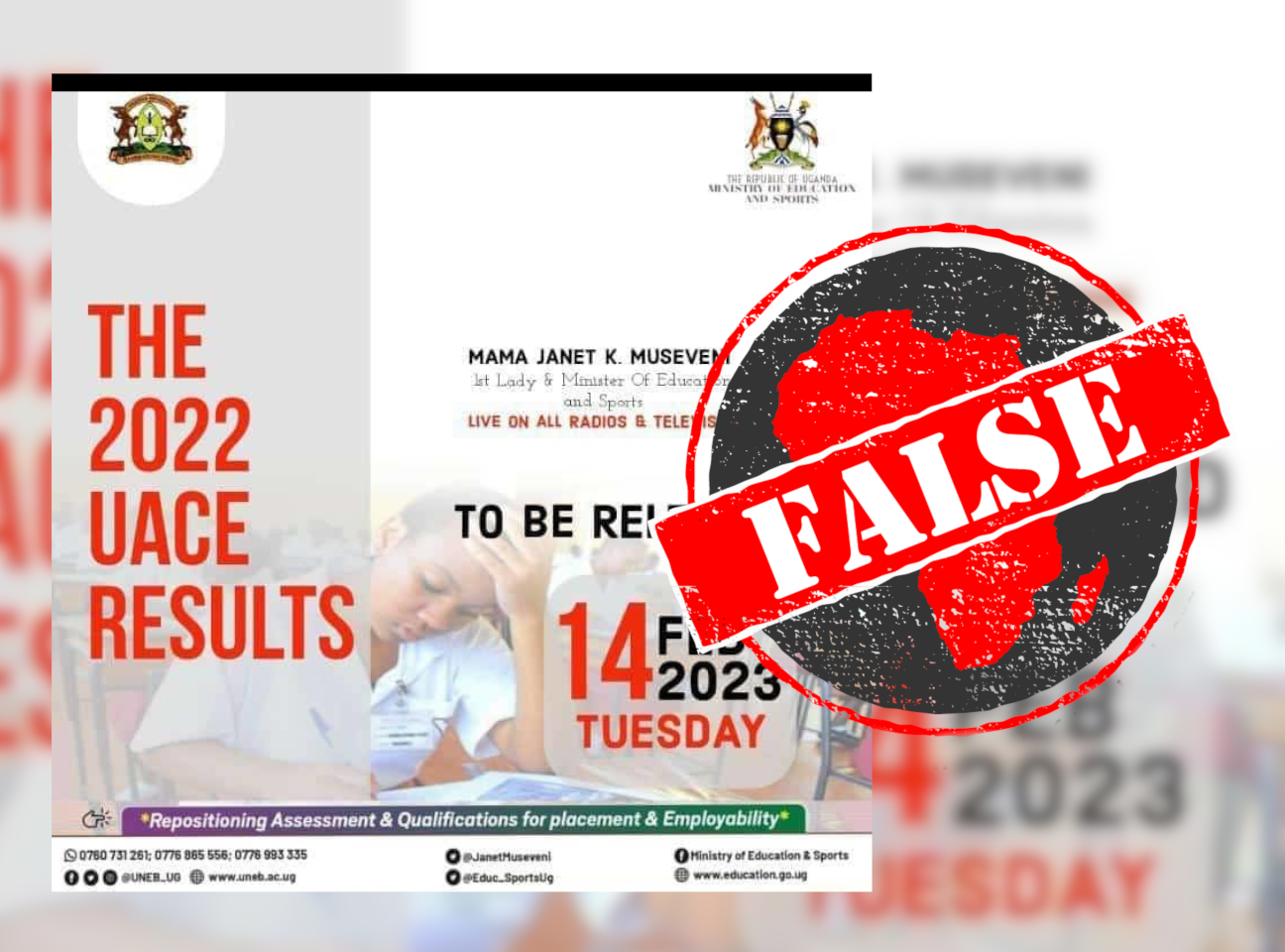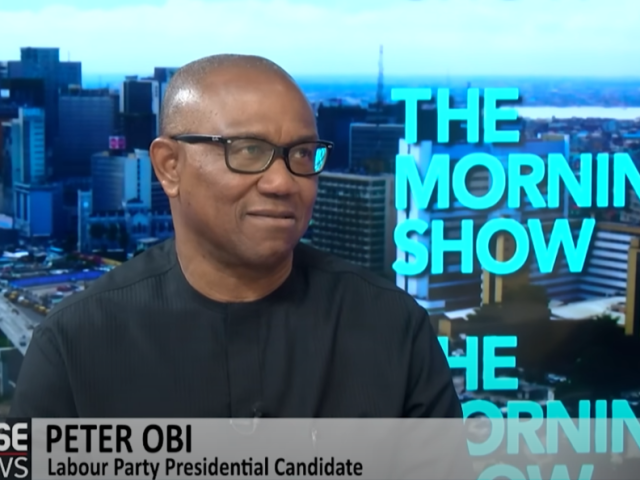IN SHORT: A graphic claims that the results of a major school-leaving exam in Uganda are ready. But the exams board says otherwise.
Does Uganda’s education minister have a Valentine’s Day surprise for school students?
A graphic doing the rounds on social media claims that results for the Uganda Advanced Certificate of Education (UACE) will be made public on 14 February 2023.
It reads: “THE 2022 UACE RESULTS TO BE RELEASED 14 FEB 2023 TUESDAY.”
The graphic says education minister Janet Museveni will announce the results live on all radio and TV stations. Museveni is also the wife of Yoweri Museveni, Uganda’s president.
The graphic shows Uganda’s coat of arms at top right and the Uganda National Examinations Board (Uneb) logo at top left.
UACE exams kicked off on 21 November 2022 and ended on 9 December.
The UACE is a subject-based qualification known in Uganda as A-levels. Students who get their A-levels can either study further at a university or college, get more training or start working.
The graphic has also been posted here, here and here. But is it legit?

‘Please disregard social media fake news’
On 13 February, Uneb posted the graphic – stamped “FAKE NEWS” – on its official Twitter page.
Please disregard social media fake news indicating that UNEB will release the 2022 UACE results on February 14. The official date of release will be communicated at the right time pic.twitter.com/vu5H9wpwYn
— Uganda National Examinations Board (@UNEB_UG) February 13, 2023
The tweet reads: “Please disregard social media fake news indicating that UNEB will release the 2022 UACE results on February 14. The official date of release will be communicated at the right time.”
Republish our content for free
For publishers: what to do if your post is rated false
A fact-checker has rated your Facebook or Instagram post as “false”, “altered”, “partly false” or “missing context”. This could have serious consequences. What do you do?
Click on our guide for the steps you should follow.
Publishers guideAfrica Check teams up with Facebook
Africa Check is a partner in Meta's third-party fact-checking programme to help stop the spread of false information on social media.
The content we rate as “false” will be downgraded on Facebook and Instagram. This means fewer people will see it.
You can also help identify false information on Facebook. This guide explains how.



Add new comment